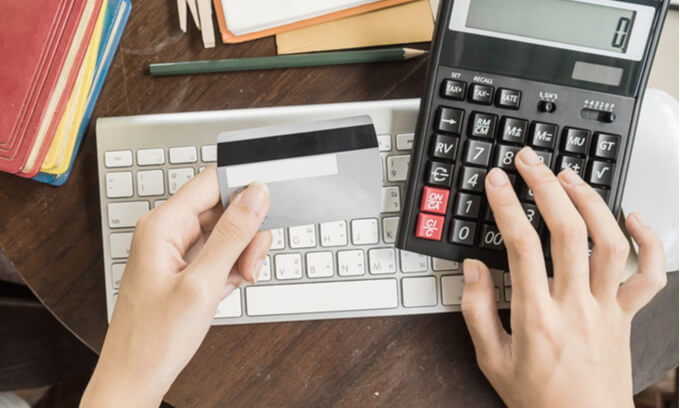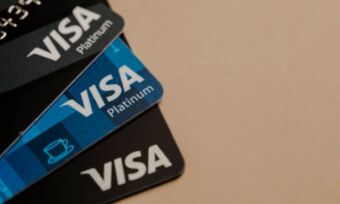Should you take out a credit card on Centrelink?
Credit cards have both pros and cons. They can be a useful financial tool, and can offer a source of funds for unexpected expenses.
But credit cards can also be expensive. You may be charged interest and fees, and if you don’t make your credit card repayments on time, it could negatively affect your credit score. You could also find yourself in debt if your repayments along with your other expenses become unmanageable, particularly with Australia’s recent cost-of-living crisis.
If you do decide you want to apply for a credit card while you are unemployed or receiving Centrelink benefits, take care to consider your credit score. You can check your credit score for free with Canstar, or via the Canstar App.
Depending on your personal financial situation, it may not be a good idea to get a credit card. Free, confidential financial counselling is available from the National Debt Helpline (NDH) on 1800 007 007 if you’d like to discuss ideas and options for managing debt and covering your expenses.
Credit cards for low income earners
When it comes to eligibility for credit cards, a number of banks are quite specific about how much income you need to earn to qualify. For example, some card issuers may require you to earn at least $15,000 annually, though this limit varies widely. Premium credit cards that offer special features, benefits and rewards programs could have higher income requirements.
Card issuers do not always publicise minimum income requirements, or promote credit cards specifically for low income earners. This doesn’t mean you can’t get a credit card if you’re a low income earner. Rather, it reflects the way banks and other card issuers determine your eligibility. Your income plays a key role, as banks and other lenders want to be confident you earn enough to manage card spending. Lenders will also take a look at your credit score to see how well you’ve managed debt and credit in the past.
As well as looking at your income, a card issuer may consider your household expenses such as rent. This can show whether you have sufficient disposable income (income after fixed bills) to keep up card repayments. That matters because card issuers have a legal duty to lend responsibly.
Can you get a credit card on Centrelink?
If you receive sufficient income, maintain a healthy credit score, and you have manageable living expenses, you may be eligible for a credit card while you receive Centrelink benefits.
One way to potentially improve your odds of being approved is to request a very low credit limit. It’s possible to have a credit limit as low as $500. It can be harder to build up unmanageable debt if you stick to a smaller credit limit.
It’s important to consider if getting a credit card is in your best interests. There are other options available for finance, and you could seek the help of a financial counsellor for free if you’d like professional advice to help you manage your expenses.
How to apply for a credit card on Centrelink
The process of applying for a credit card is often fairly straightforward. Once you have compared your credit card options and selected your preferred card, you can contact the card issuer online, over the phone, or in person to apply. You’ll typically need to provide documentation to prove your age, residency, income (including Centrelink income), expenses, assets and liabilities as part of your application. The lender will also conduct a credit check before you can be approved for a credit card.
If you are receiving Centrelink benefits and do decide to apply for a credit card, some options you may consider include low rate or interest-free credit cards with a low credit limit. Take the time to consider any eligibility requirements before you apply, and speak to a lender if you have any questions.
While it’s important to compare credit card options, making multiple credit card applications to different issuers in the hopes of getting at least one approval can risk damaging your credit score. Consider doing your research first before applying for a card that should suit your needs.
Low rate credit cards
Paying a low interest rate can help minimise the cost of any money owed on your credit card. This is particularly relevant if you plan to carry an ongoing balance on your card from one month to the next. Be sure to check that a low interest rate credit card doesn’t come with high annual fees, which will just add to the card cost.
Low rate credit cards typically don’t offer extra features and benefits such as reward programs, as earning reward points often calls for significant card spending. Before you apply for any credit card, take the time to carefully read the Target Market Determination and Key Facts Sheet, to check if it’s suitable for your needs.
In Canstar’s 2025 Credit Cards Star Ratings and Awards we’ve reviewed and rated 122 credit card products; with Award-winning providers announced, including lenders offering consumers outstanding value for low cost credit cards.
Interest-free credit cards
Several card issuers offer ‘no-interest’ or ‘interest-free’ credit cards. Instead of charging interest on the outstanding card balance each month, you pay a fixed monthly fee along with regular card repayments. This style of card can be easier to budget for if you’re on Centrelink payments.
The downside is that if you have a low credit limit, the monthly fee can work out to be much the same as paying a high rate of interest. Again, it comes down to shopping around, and crunching the numbers to see which type of card suits you best.
What other options are available to borrow money?
If you’re of pension age, you may be eligible for the Federal Government’s Home Equity Access Scheme, but this does require using Australian real estate as a security. The no-interest loan scheme also exists to provide loans of up to $2,000 for the purchase of essential goods, but certain eligibility requirements apply.
If you’re in financial stress or are concerned that your debt may be unmanageable, you can speak to a financial counsellor for free by calling the National Debt Helpline (NDH) on 1800 007 007.









